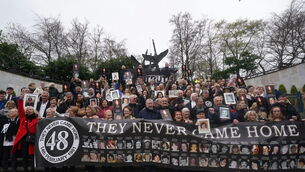Bid to stop victims of abuse from suing State

In January 2014, the European Court of Human Rights ruled that, under the European Convention, the rights of Ms O’Keeffe from Cork had been breached by the failure of the State to protect her from abuse by her school teacher, Leo Hickey, in the 1970s. Ms O’Keeffe, 48, had previously lost High Court and Supreme Court cases, which found the State could not be held vicariously, or separately, liable for the abuse, as the school was not operated and managed directly by the State, but by an independent board of management.
Ms O’Keeffe, who won her action against the abuser, argued the State, as the payer of the teacher’s salary, and supervisor of other matters related to the school, was also responsible.












